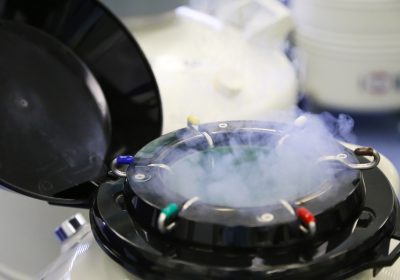A cancer diagnosis, whether it be for yourself, a partner, other relative or a child can be devastating and frightening.
Amongst the abundance of information and instructions, thinking about having children and therefore preserving your fertility is probably the furthest thing from one’s mind during this time. However it is an important topic that needs to be considered and discussed for anyone who is approaching or at reproductive age facing a cancer diagnosis and subsequent cancer treatment.
Concept Fertility Centre has been undertaking fertility preservation for the Western Australian community for many years and has long been the provider of choice for what can be a daunting time.
Fertility preservation is when eggs, sperm, or reproductive tissue are saved or protected so that a person can potentially use them for fertility treatments in the future. It is important to have this conversation with your Oncologist and ascertain how long before commencing your cancer treatment you have to consider your fertility options. An immediate referral to a Fertility Specialist is highly recommended.
Cancer treatment often involves the use of chemotherapy, radiation and hormone therapy all of which can have a negative impact on one’s fertility. Radiation and chemotherapy can damage eggs and sperm leading to infertility. The extent of the impact on one’s fertility is different for everyone so it is important to understand all the options and risks.
In women, infertility following cancer treatment may arise for a number of reasons, including:
• The ovaries being unable to produce mature eggs (ovarian failure)
• Disruption of hormonal signalling between the brain and the ovaries
• Damage to the uterus or fallopian tubes from either surgery, or chemotherapy/radiotherapy
Upon a cancer diagnosis a fertility specialist will discuss with you all of the factors that need to be taken into consideration, including: the type of cancer; your oncology treatment plan; your age; and your relationship situation, in order to ensure that appropriate actions are taken to potentially preserve your fertility within an appropriate timeframe.
If you have a partner, you may choose to undergo an IVF/ICSI cycle before undergoing cancer treatment, and to freeze good quality embryos for future fertility treatment (which might occur some years later). Please refer to IVF treatment on this website.
Although not guaranteed, embryo freezing is a highly successful treatment option. As with a standard IVF procedure, women under the age of 38 at the time of egg retrieval will have a higher chance of pregnancy success in the future.
Single women undergo ovulation induction to produce eggs which are then retrieved and frozen.
Post cancer treatment, if a woman is ready to use her eggs, they are thawed and then fertilised with sperm. Once an embryo of good quality develops, it is then transferred into the women’s uterus hopefully resulting in a successful pregnancy.
Depending on the urgency of cancer treatment, a woman may choose to undergo more than one cycle of stimulation and egg retrieval. This helps to ensure a higher number of eggs are retrieved and frozen, therefore increasing the chance of pregnancy in the future.
Again, a woman’s age at the time of egg freezing is an important factor in determining pregnancy success, and women under the age of 38 would be expected to have a higher chance of pregnancy in the future if you in fact decide that parenthood is a pathway they chose to pursue.

If you are diagnosed with a cancer where the recommended treatment option may affect your sperm quality or production, you may wish to consider sperm freezing in order to preserve your chance of having a family in the future.
Sperm freezing is an option for the majority of men, even those with poor sperm quality prior to undergoing cancer treatment.
For people considering freezing embryos, eggs or sperm, the stability of their relationship is important. Where embryos are created, both partners have a right to veto future use of the embryos, should the relationship run into problems or break down later. The serious consequences of this, for either the woman or man undergoing fertility preservation would be that she/he could lose access to their own reproductive materials.
Please don’t delay in contacting us so we can support you through this difficult time.